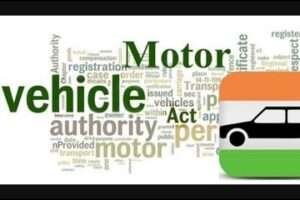Preliminary Assessment To Try Juvenile As Adult – JJB Should Mandatorily Take Assistance Of Psychologist/Psycho-Social Workers
Case: Barun Chandra Thakur v. Master Bholu And Anr.
Coram: Justices Dinesh Maheshwari and Vikram Nath
Case No.: Criminal Appeal No. 950 of 2022
Court Observation: “…we are of the view that where the Board is not comprising of a practicing professional with a degree in child psychology or child psychiatry, the expression “may” in the proviso to section 15(1) would operate in mandatory form and the Board would be obliged to take assistance of experienced psychologists or psychosocial workers or other experts. However, in case the Board comprises of at least one such member, who has been a practicing professional with a degree in child psychology or child psychiatry, the Board may take such assistance as may be considered proper by it; and in case the Board chooses not to take such assistance, it would be required of the Board to state specific reasons therefor.”
“While considering a child as an adult one needs to look at his/her physical maturity, cognitive abilities, social and emotional competencies. It must be mentioned here that from a neurobiological perspective, the development of cognitive, behavioural attributes like the ability to delay gratification, decision making, risk taking, impulsivity, judgement, etc. continues until the early 20s. It is, therefore, all the more important that such assessment is made to distinguish such attributes between a child and an adult. Cognitive maturation is highly dependent on hereditary factors. Emotional development is less likely to affect cognitive maturation. However, if emotions are too intense and the child is unable to regulate emotions effectively, then intellectual insight/knowledge may take a back seat.”
“The Board and the Children’s Court apparently were of the view that the mental capacity and the ability to understand the consequences of the offence were one and the same, that is to say that if the child had the mental capacity to commit the offence, then he automatically had the capacity to understand the consequences of the offence. This, in our considered opinion, is a grave error committed by them.”
“Children may be geared towards more instant gratification and may not be able to deeply understand the longterm consequences of their actions. They are also more likely to be influenced by emotion rather than reason. Research shows that young people do know risks to themselves. Despite this knowledge, adolescents engage in riskier behaviour than adults (such as drug and alcohol use, unsafe sexual activity, dangerous driving and/or delinquent behaviour). While they do consider risks cognitively (by weighing up the potential risks and rewards of a particular act), their decisions / actions may be more heavily influenced by social (e.g. peer influences) and/or emotional (e.g. impulsive) tendencies. In addition, the lack of experience coupled with the child’s limited ability to deeply understand the longterm consequences of their actions can lead to impulsive / reckless decision making.”
Previous Posts
State Not Obliged To Pay Salary To Teachers Whose Appointments Are Void Ab Initio: Kerala High Court
High Court Under Article 226 And 227 Should Be Extremely Circumspect In Interfering With Orders Passed Under Arbitration Act Download Judgement
Keywords
Preliminary Assessment, Preliminary Assessment To Try Juvenile As Adult




